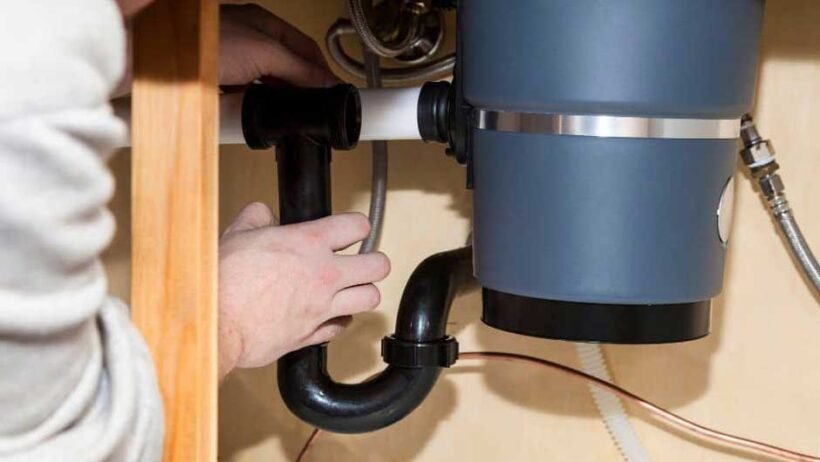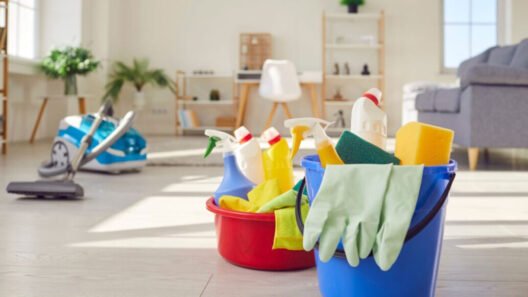Garbage disposals are one of the most useful appliances in the modern kitchen. They make it easy to break down food waste, reduce odors in the trash, and keep your sink area clean. However, like any appliance, they can run into problems that need fixing. Knowing the right garbage disposal repair tips can save you money, extend the life of your unit, and help you avoid costly service calls. This article will walk you through effective strategies for diagnosing and fixing common disposal issues, plus preventive maintenance that keeps everything running smoothly.
Understanding How Garbage Disposals Work
Before diving into repair tips, it is helpful to know how a garbage disposal operates. Inside the unit, there are impellers mounted on a spinning plate. When food waste enters, the impellers use centrifugal force to push scraps against a grind ring, breaking everything down into small particles, shares Specialized Property Management Charlotte team. These particles are then washed away with water through your plumbing. Because disposals do not use sharp blades like many assume, clogs and jams typically come from misuse rather than wear on cutting parts.
Safety First: The Golden Rule of Garbage Disposal Repair
The most important safety rule is to always turn off the power before working on the disposal. Garbage disposals are powered by electricity, and putting your hand inside a unit while it is connected can be extremely dangerous. Unplug the unit under the sink, or switch off the circuit breaker. Never attempt to reach inside while the disposal is running.
Common Garbage Disposal Problems and Repair Tips
-
Garbage Disposal Will Not Turn On
If your disposal does not respond when you flip the switch, the issue could be electrical. First, press the reset button located at the bottom of the unit. This small red button acts as a circuit breaker and can trip if the motor overheats. If resetting does not work, check your home’s electrical panel for a tripped breaker. If power is flowing and it still will not start, the wiring or motor may need professional attention.
-
Garbage Disposal Hums But Does Not Grind
A humming sound usually means the disposal is jammed. Food scraps, utensils, or even fibrous materials like corn husks can get stuck. Turn off the power and use a hex wrench to rotate the flywheel from the underside of the unit. Many disposals come with a special wrench designed for this purpose. This helps dislodge whatever is stuck and frees the impellers. Never use your hands inside the disposal to clear jams.
-
Garbage Disposal Drains Slowly
If water is pooling in your sink, the issue is likely a clog in the drain pipe rather than the unit itself. Use a sink plunger or remove the trap under the sink to clear the blockage. Avoid chemical drain cleaners, as they can corrode pipes and damage the disposal. A natural solution of hot water, vinegar, and baking soda often helps dissolve grease buildup safely.
-
Garbage Disposal Is Leaking
Leaks can occur in several places: the sink flange, the discharge pipe, or the unit’s body. Tighten any loose mounting bolts around the flange or replace worn-out plumber’s putty. Check the rubber gasket between the disposal and drain pipe, as it can crack over time. If the leak is coming from the unit’s body, replacement may be the only option.
-
Bad Odors Coming From the Disposal
Even if your disposal grinds food effectively, leftover particles can create unpleasant smells. To freshen it, grind a few ice cubes with lemon or orange peels. The ice helps scrape residue from the grind ring, while citrus adds a clean scent. For deeper cleaning, pour a half cup of baking soda into the disposal, followed by a cup of vinegar. Allow the mixture to fizz before rinsing with hot water.
Preventive Garbage Disposal Repair Tips
Repairing a disposal is one thing, but preventing problems in the first place is even better. Follow these preventive practices to keep your unit in top shape.
Run Plenty of Cold Water
Always run cold water while the disposal is on and for a few seconds afterward. Cold water keeps grease solid, so it can be ground up and flushed out, instead of melting and sticking to the pipes.
Feed Waste Gradually
Avoid cramming large amounts of food into the disposal at once. Feed scraps gradually to prevent clogs and reduce strain on the motor.
Know What Not to Put in a Disposal
Many repair calls happen because users put the wrong items down the disposal. Avoid fibrous foods like celery, corn husks, and onion skins, which can tangle in the impellers. Do not grind bones, fruit pits, or shellfish shells. Coffee grounds and grease are also problematic, as they create clogs over time.
Clean the Disposal Regularly
A quick cleaning routine goes a long way. Run a small amount of dish soap with cold water through the disposal once a week. Adding ice cubes occasionally helps dislodge buildup.
Check for Wear and Tear
Inspect the unit every few months for leaks, rust, or loose connections. Catching small issues early prevents costly repairs later.
When to Call a Professional
While many garbage disposal repair tips can be handled at home, some problems require expert help. If your unit frequently trips the breaker, produces grinding metal sounds, or leaks from the body itself, a professional plumber or electrician may need to diagnose the issue. Likewise, if your disposal is over ten years old, replacement may be more cost-effective than repair.
Extending the Life of Your Garbage Disposal
The average garbage disposal lasts about 10 to 12 years, but with good care, it can serve you even longer. Combining safe operation, regular cleaning, and proper maintenance habits ensures your unit stays reliable. If you notice it takes longer to grind food, makes louder noises, or needs frequent resets, consider these signs that repair or replacement is necessary.
Eco-Friendly Alternatives to Frequent Disposal Use
Although disposals are convenient, they are not the only option for food waste management. Composting is a sustainable alternative for many scraps, especially fruits, vegetables, and coffee grounds. Reducing reliance on disposals can lessen wear on the unit and benefit the environment.
Final Thoughts
Garbage disposals are incredibly useful appliances, but like all household devices, they need proper care and occasional repairs. By following the right garbage disposal repair tips, you can handle many common issues yourself and avoid costly service calls. Always remember to put safety first, run water consistently, and avoid disposing of items that can damage the unit. With these practices, your disposal can remain a reliable kitchen helper for years to come.








